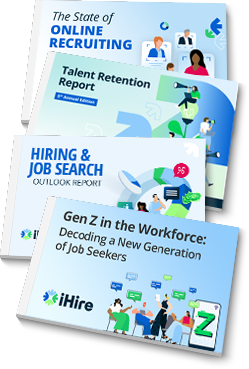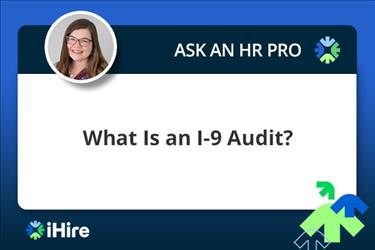- Employer Resources
- |
- Last Updated: August 05, 2025

Guide to Holding Effective Healthcare Panel Interviews
In today’s competitive healthcare talent market, organizations must implement strategic hiring practices that efficiently assess candidates while showcasing their workplace culture. Panel interviews have emerged as a valuable tool for healthcare employers seeking to make more informed hiring decisions.
This collaborative approach brings multiple perspectives to the evaluation process, helping organizations identify candidates who possess not only the technical skills but also the cultural fit necessary for success in healthcare environments.
This comprehensive guide explores how healthcare organizations can implement effective panel interviews, from planning and preparation to execution and evaluation. By understanding best practices for healthcare panel interviews, your organization can enhance its hiring process, reduce time-to-fill metrics, and improve hiring outcomes for clinical and non-clinical roles alike.
What Are Healthcare Panel Interviews?
A healthcare panel interview involves multiple interviewers simultaneously evaluating a candidate during a single interview session. Unlike sequential interviews where candidates meet with different stakeholders individually, panel interviews bring together a diverse group of interviewers to assess the candidate collectively.
Common Panel Members for Healthcare Roles
The makeup of an effective healthcare panel interview typically varies based on the position being filled, but may include:
- Direct supervisor or department manager
- Peer-level colleagues who would work directly with the new hire
- Clinical leader (for clinical roles) or relevant technical expert
- Interdisciplinary team members who would collaborate with the role
- Executive leadership representative (for senior roles)
For example, a panel interview for a registered nurse position might include the nursing manager, a charge nurse, another staff nurse from the unit, and perhaps a representative from a department that frequently collaborates with the nursing unit, such as pharmacy or occupational therapy.
Why Use a Healthcare Panel Interview?
Healthcare organizations are increasingly adopting panel interviews due to their numerous advantages in healthcare recruitment:
1. Increased Number of Perspectives
Healthcare delivery requires seamless collaboration across disciplines and departments. Panel interviews bring diverse perspectives to candidate evaluation, helping assess how well potential hires will function within interdisciplinary teams. This collaborative approach helps identify candidates who demonstrate not only technical competence but also the communication skills and teamwork essential in healthcare environments.
2. Increased Hiring Efficiency
Healthcare organizations often face pressure to fill positions quickly while maintaining quality standards. Panel interviews streamline the hiring process by allowing multiple stakeholders to evaluate candidates simultaneously. This approach reduces the number of interview rounds needed, decreases time-to-fill metrics, and improves the candidate experience. In time-sensitive healthcare hiring scenarios, this efficiency can be crucial for securing top talent before competitors and before standard staffing models are disrupted.
3. Reduced Individual Bias
Healthcare organizations must ensure fair hiring practices that evaluate candidates objectively. Panel interviews help mitigate individual biases by incorporating multiple perspectives in the evaluation process. When diverse team members participate in candidate assessment, personal preferences and unconscious biases tend to be balanced by the collective judgment of the group. This approach leads to more objective hiring decisions based on comprehensive candidate evaluation.
4. Enhanced Candidate Experience
For candidates, panel interviews provide a more holistic view of the organizational culture and team dynamics. Meeting potential colleagues and leaders during the interview process helps candidates make more informed decisions about role fit. Well-executed panel interviews demonstrate organizational transparency and efficiency, enhancing your employer brand and making your healthcare organization more attractive to top talent.
5. Improved Onboarding and Integration
When multiple team members participate in the hiring process, they develop a sense of ownership in the success of the new hire. This involvement creates natural advocates who can help integrate the selected candidate into the team. Panel interviewers often become informal mentors who support the new employee’s adaptation to the organizational culture and clinical environment, leading to faster productivity and higher retention rates.

How to Conduct a Healthcare Panel Interview
Executing effective panel interviews requires careful planning and coordination. The following steps can help you implement a structured healthcare panel interview process:
1. Determine the Interview Panel Composition
Strategic panel composition is critical for effective healthcare interviews:
- Identify key stakeholders who will interact with the new hire
- Limit panel size to three to five participants to avoid overwhelming candidates
- Include diverse perspectives (clinical, administrative, peer-level)
- Ensure panel members understand the role’s requirements
For clinical leadership positions, consider including representatives from disciplines that collaborate with the department. For staff-level clinical roles, include potential peers who can assess cultural fit/add and teamwork skills.
2. Define Interviewers’ Roles and Responsibilities
Clear role definition prevents redundancy and ensures comprehensive evaluation:
- Assign a panel facilitator to guide the interview process
- Determine specific evaluation areas for each panel member
- Assign questions strategically to avoid duplication
- Establish how decisions will be made following the interview
- Create evaluation criteria aligned with job requirements
For example, a nursing manager might focus on soft skills, while a peer nurse evaluates technical skills and an occupational therapist might assess interdisciplinary teamwork skills.
3. Develop Structured Interview Questions
Healthcare panel interviews benefit from carefully designed questions:
- Create scenario-based questions that assess clinical judgment or role-specific skills
- Include behavioral questions addressing past performance in relevant situations
- Develop questions assessing cultural fit/add and alignment with organizational values
- Prepare technical questions appropriate to the level of expertise required
- Incorporate questions about interdisciplinary collaboration
Ensure questions are role-specific and legally compliant, and provide meaningful insight into the candidate’s capabilities and potential; training/coaching from an HR team member could help prepare your panel members accordingly. Example questions are discussed in the next section.
4. Prepare Candidates in Advance
Not all candidates will be familiar with healthcare panel interviews. Setting expectations helps them perform their best.
- Provide panel members’ roles prior to the interview
- Explain the interview format and approximate duration
- Outline general topic areas that will be covered
- Share logistics information including location, parking, or virtual meeting details
- Specify any presentations or demonstrations expected from the candidate
Proper preparation reduces candidate anxiety and allows for more meaningful interaction during the interview.
5. Conduct the Panel Interview
Execute the interview with professionalism and structure:
- Begin with introductions and a brief overview of the process
- Have the facilitator manage the flow and timing of questions
- Maintain a conversational tone rather than an interrogation-style approach
- Take notes on responses using a standardized evaluation form
- Allow time for candidate questions about the role and organization
- Close with clear next steps and timeline for decision-making
Consider beginning with easier questions to help the candidate relax before proceeding to more challenging or technical inquiries. Having an HR representative present may also help to facilitate the conversation and ensure the candidate understands next steps.
6. Debrief and Evaluate
Immediate post-interview discussion improves evaluation quality. A member of your HR team may do the following:
- Schedule time immediately after the interview (or in the same workday) to debrief
- Use standardized evaluation criteria to compare candidates objectively
- Discuss concerns and strengths identified during the interview
- Document the collective assessment for future reference
- Make decisions based on predetermined criteria rather than general impressions
Prompt debriefing ensures fresh impressions are captured and prevents individual opinions from shifting based on others’ perspectives.
Reach Qualified, Career-Driven Healthcare Pros You Won't Find on Other Job Boards
Create Your Account Today

We Value Your Privacy
7 Panel Interview Questions for Healthcare Roles
Effective healthcare panel interviews utilize questions that assess technical knowledge, interpersonal skills, and cultural fit/add. Here are ten panel interview questions to consider for healthcare roles:
Describe a situation where you had to work closely with colleagues from different disciplines to resolve a patient care issue.
What It Assesses: This question evaluates the candidate’s ability to function in interdisciplinary teams, a crucial skill in healthcare environments. It reveals the candidate’s communication style, respect for other disciplines, and problem-solving approach. In a healthcare panel interview, this question can be analyzed by multiple members of the interdisciplinary team simultaneously for a broad look at teamwork skills.
Tell us about a time when you had to make a quick clinical decision with limited information.
What It Assesses: This question helps evaluate critical thinking skills, clinical reasoning, and the candidate’s approach to uncertainty – all essential qualities in healthcare settings where decisions often must be made quickly. This panel interview question for healthcare roles can help interviewers understand how the candidate may perform under pressure.
Describe how you’ve adapted to a significant change in clinical practice or procedures.
What It Assesses: This question explores the candidate’s flexibility, willingness to learn, and approach to continuous improvement – important qualities in the ever-evolving healthcare field. Depending on their answer to this panel interview question for healthcare, it may also reveal how well they integrate other members of the healthcare team into their decisions.
Share an example of how you’ve adjusted your approach to care based on a patient’s specific needs, values, or preferences.
What It Assesses: This question examines the candidate’s commitment to patient-centered care, cultural sensitivity, and ability to personalize care approaches within established protocols. Having many different employees in the healthcare panel interview can help to mitigate cultural and personal differences and sensitivities.
Describe a conflict you experienced with a colleague or another department. How did you approach the situation, and what steps did you take to resolve it?
What It Assesses: This question reveals the candidate’s interpersonal skills, emotional intelligence, and approach to workplace disagreements, which are critical in high-stress healthcare environments. Including multiple levels and disciplines among the healthcare panel interviewers can send a signal that conflict management should not favor one discipline or another.
Discuss a situation where you faced an ethical dilemma in your healthcare role. How did you approach it, and what factors influenced your decision?
What It Assesses: This question evaluates the candidate’s ethical reasoning, values alignment with organizational culture, and approach to complex situations without clear-cut answers. This panel interview question is especially important for healthcare roles where ethical decisions need to be made regularly, such as within surgery or palliative care.
How do you stay current with developments in your discipline and the broader healthcare sector?
What It Assesses: This panel interview question for healthcare roles explores the candidate’s commitment to ongoing education, professional engagement, and self-improvement. In the debrief after the candidate has left, healthcare panel interviewers can discuss how well the candidate’s strategies for professional development (1) are appropriate for the discipline and (2) would be sustainable while working in the healthcare role.
5 Best Practice Healthcare Panel Interview Tips
Beyond the panel interview questions for healthcare roles, an effective healthcare panel interview must meet the needs of the candidate, current employees, and the organization as a whole. Implement these best practice healthcare panel interview tips to maximize their effectiveness:
1. Standardize the Process for Consistency and Fairness
Standardization in the interview process enhances objectivity and facilitates candidate comparison. This can be achieved by using identical core questions for all candidates applying for the same position and developing standardized evaluation rubrics with clear criteria. It is also important to train all panel members on proper interview techniques and bias awareness. Establishing consistent time allocation for each candidate and documenting responses systematically using standardized forms further supports standardization.
For example, creating and implementing an interview guide that all panel members follow ensures that each candidate has the same opportunity to demonstrate their qualifications.
2. Balance Clinical and Behavioral Questions
Comprehensive assessment in healthcare hiring requires evaluating both technical and interpersonal competencies through panel interviews. This involves incorporating scenario-based clinical questions relevant to the role, behavioral questions assessing soft skills like communication and teamwork, and inquiries about specific healthcare technologies.
Exploring past experiences that demonstrate the ability to apply knowledge in practice and including questions about interprofessional collaboration are also crucial. For clinical roles, consider adding a skills demonstration or case study discussion alongside traditional interview questions to further evaluate applied knowledge.
3. Create a Welcoming Environment
Reducing candidate anxiety during healthcare panel interviews fosters more genuine interactions. This can be achieved by starting with introductions and a relaxed conversation to build rapport, clearly outlining the interview process and expectations, arranging seating in a way that encourages dialogue rather than creating a formal or intimidating atmosphere, offering refreshments to show hospitality, and skillfully managing the panel’s dynamics to prevent the candidate from feeling overwhelmed.
Remember that candidates are also forming an impression of your organization during this process, and a positive interview experience significantly shapes their view of your workplace culture.
4. Leverage Panel Members Effectively
When appropriate, include panel members from different healthcare fields and ensure representation from individuals with varied experience levels and backgrounds. Assign specific evaluation responsibilities based on each panel member’s expertise. It is also beneficial to include insights from frontline staff alongside those of management.
For instance, when interviewing a physical therapist, involve professionals from nursing, case management, or other relevant therapy areas who would collaborate with this role.
5. Provide Timely and Transparent Follow-Up
Post-interview communication significantly impacts candidate experience. Healthcare organizations should establish clear timelines for decision-making and communicate these to candidates. They should also provide constructive feedback when appropriate and maintain consistent communication throughout the hiring process.
Involving panel members in the onboarding planning for selected candidates and soliciting feedback from candidates about their interview experience are also valuable practices. Timely and transparent follow-up demonstrates respect for candidates’ time and enhances the organization’s reputation within the healthcare community.
Integrate Healthcare Panel Interviews Into Your Hiring
Effective healthcare panel interviews represent a valuable tool for healthcare organizations seeking to make informed hiring decisions while efficiently evaluating candidates. By bringing together diverse perspectives from across the organization, panel interviews provide a more comprehensive assessment of candidates’ technical skills, interpersonal abilities, and cultural fit within healthcare teams.
As competition for healthcare talent continues to intensify, organizations that implement best practices in panel interviewing gain a significant advantage in attracting and selecting the right candidates for their teams. By investing in a well-designed healthcare panel interview process, employers can improve hiring outcomes, reduce turnover, and build cohesive teams committed to delivering exceptional patient care.
Looking for more ways to enhance your healthcare organization’s interview process? Check out the iHire Employer Resource Center.
RELATED RESOURCES
Hiring? You're in the Right Place.
- Reach unique talent: 51% of our candidates aren't using other job boards
- Connect your ATS and get 6x more applications with iHire's apply process
- Get matching candidate resumes sent straight to your inbox
We Value Your Privacy


![Skills Over Degrees: The Future of Hiring [Video Webinar]](https://p-gpb8fhd4b9fbh6fy.z01.azurefd.net/cms/2f6c3996-55d2-41a7-92cd-801a93177d31/4adbd698-ab4c-4e81-9823-8c8cfade1f76-md.png)

